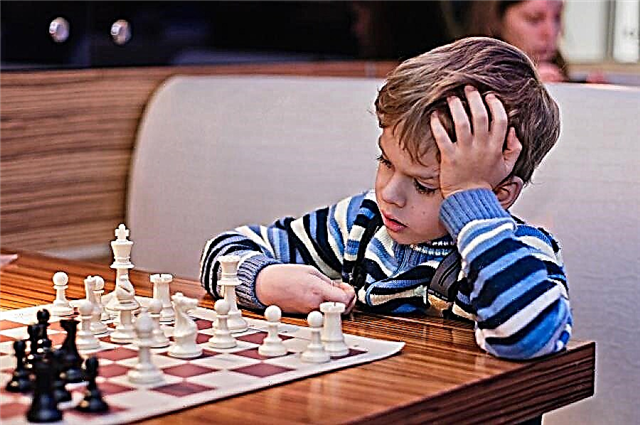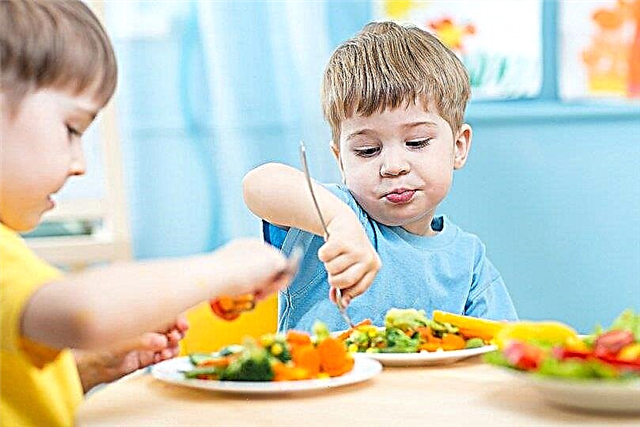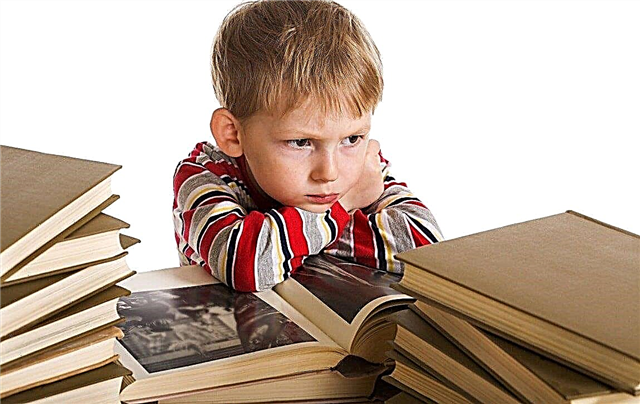The first smile, the first word, the first uncertain steps - every achievement of the child makes his parents proud. This bright and joyful picture is overshadowed by the strangeness in the behavior of the crumbs, which over time become more noticeable. Here the kid is eating the pellets from the carpet, and then suddenly starts banging his head against the wall or exploring his private places in a crowded place. At such moments, thoughts rush through the head of an adult that perhaps something is wrong with the child. Or is he just going through the natural stage of his development and maturation?

Strangeness in behavior is generally characteristic of children aged 2-3 years (on the eve of the crisis of 3 years). Many of them are absolutely harmless and simply help the child to calm down and feel more comfortable and confident in this vast world. Nevertheless, it will be useful for adults to find out what special attention should be paid to the behavior of babies and what new habits of the crumbs should be told to the doctor.
In this article, we will tell you what is normal in the behavior of a small child, and what is a reason to sound the alarm. Let's try to decipher the secret language of babies and understand why they sometimes perform such strange and incomprehensible actions for adults.
Actions aimed at complacency and banging your head against the wall
Banging your head against the wall - yes, it looks frightening at times. Especially if you put in the "adult" meaning of the expression "bang your head against the wall." However, for children aged 1-2 years, this is normal, no matter how wild it is to hear about it.
At 1-2 years old, babies sometimes make repetitive movements just to calm themselves down, when they get into a stressful situation, get tired, and get bored.The child can swing from side to side or even rhythmically beat his head against the wall, floor, or the bar of his crib. Although it looks scary and the parent is intimidated by this behavior, it is unlikely that the child will be able to harm himself in this way. Most often, the habit of making calming repetitive movements passes by the age of 3 years. Until the baby has grown up, try to protect him as much as possible - for example, move him to a soft carpet, on which the baby will certainly not break his forehead.
If a baby sucks on a thumb or pacifier, it is likely that these are also his ways to relieve stress. When babies do this, everything looks cute. When the child grows up, the affection of the parents is replaced by anxiety. However, there are no obvious reasons for concern if the baby ties up with this habit by the age of 4 years. Further sucking on a thumb or pacifier can already negatively affect gum health and create problems with speech development.
In addition to fingers, babies drag dirt, sand, pet food into their mouths. All this is normal, many children do this, and as they grow up, they forget about these habits forever. A child can be very picky about food, but inedible objects are examined with the mouth.
You should take your child to the pediatrician if the child is rocking, banging his head against a wall, or performing other repetitive movements all day long. A dangerous situation can be when there are many alarm bells in the behavior of the toddler at once. For example, he not only chews on inedible things, but is not particularly attached to his parents and brothers and sisters, and also suffers from a delay in speech.
Performing rituals
At the age of 1-2 years, babies sometimes have their own rituals, which they perform every day. For example, some people carefully and for a long time arrange their toys in a straight line. If this order is violated, the baby becomes so offended that he can lose control over himself and throw a tantrum. Such rituals appear due to the fact that children also have a need for constancy, for everything to be stable and good. This behavior itself is absolutely normal, as long as the child perceives it as a game - for example, putting trains at the station exactly at night so that they can sleep.
If a toddler puts his plush friends on their backs or tummies to sleep comfortably, it is obvious that they are playing. In this case, the parents have nothing to worry about. A wake-up call is a child's obsession with arranging toys in a specific order when there is no interest in play. Parents should be alarmed by the fact that the baby is immersed in his invented world, does not want to communicate with others. Another reason to show the child to the doctor is his desire to certainly perform his usual ritual, even if for this you have to interrupt the meal or any other activity.

Examining your body
Small children often pick their noses. After all, get a booger from there — how to find the hidden treasure. Slowly teach your child to use a handkerchief and tissues so that he can then get rid of the habit of picking his nose.
Children also study their bodies, especially intimate places, which is normal. The main problem is that the child makes the parents blush if they do this in front of their friends and acquaintances. Unpleasant situations can be prevented if you explain to the child that it is possible to examine your body at home, but it is better not to do this in front of strangers.
Experts advise not to prohibit, but to give recommendations on behavior: it is not customary to touch yourself in the kindergarten, in the store and in the presence of other people. And, as a rule, the baby is prone to this habit if he spends a lot of time bored and not having fun. Take care of filling the child's leisure time so that he does not get bored.
Abnormal is excessive interest in your body, a constant desire to touch yourself - instead of playing with other children, listening to a fairy tale, watching a cartoon.
Child's imaginary and toy friends
Surely, almost every adult has come across children for whom toys are the whole Universe. They put them to bed in such a way that they leave no room for themselves, or they take a whole arsenal of "friends" to all exits from the house. There are kids who communicate with characters invented in their heads, invisible to others. There are also such guys who invent that Carlson is waiting for them at the dacha.

If we exclude some awkward situations in society, such a habit is a natural reaction of a growing up crumbs to the fact that the world is constantly changing. We should not forget about the rich imagination of children. It is difficult for kids to immediately adapt to an adult world that is incomprehensible to them in many ways, therefore they create for themselves a completely comfortable place - an imaginary world. If adults recognize and in some way encourage such a world of their child, they thereby feed his activity towards creation and creation, which is already very good. And situations when a beloved “friend” gets lost or goes to the wash can be stressful for the baby. But there is a way out of this situation. For parents, this is a great opportunity to explain to a child that sometimes you need to do without familiar things.
Most often, games with imaginary friends in young children do not go beyond the norm, therefore they do not require medical intervention. However, if the parents began to notice that every time, instead of meeting with real friends, the baby decides to stay at home and play with invented friends, then you need to contact a specialist.

Games with the contents of a pot and diaper
A small child, who was born not so long ago and is now actively exploring the world, is interested in literally everything. Sometimes, at first glance, situations are completely “disgusting”. The child relieved his need for a diaper, and then pulled it off, removed the contents and actively sculpts, draws on the walls or even tastes feces.
Children a little older can carry out similar manipulations with the contents of the pot if their mother was distracted and did not take it out in time. Adults are often prone to panic, screaming and bouts of disgust about this, but in reality there is no cause for concern. For a baby, feces is a new material for play. He was part of his body, therefore he does not pose a threat to the child (from the standpoint of himself).
Parents just need to make feces less fun. To discourage a child from sculpting his own excrement, it is necessary to develop and satisfy his tactile needs. For this, children's plasticine or dough (special from the store or homemade for pies), kinetic sand, and even the construction of locks from mud, will perfectly satisfy the tactile needs of the child. Other nuances are a matter of parents' time and technique. You will need to keep an eye on the pot more often, and fasten the diaper more tightly (you can even use tape 🙂) or tuck it inside the clothes.
The strange tastes of children
It often happens that young children eat everything that makes an adult feel surprised and misunderstood. This can be a ball of dust and wool, a piece of chalk, litter for a cat litter, pebbles on the street, contact lenses, inedible plants and other debris.
Parents don't need to worry. The fact is that the child uses his mouth as an important tool for exploring the world around him. Therefore, often what cannot be eaten will at least be licked by a child. Babies often bite, lick or suck on something - this is the norm for an early age. Any adult can remember the tip of a pen or pencil eraser in his mouth. But at the same time, it is difficult for an adult to admit that eating wool is normal.
It is important to pay attention to the severity of the manifestation of the habit in the baby and its frequency. If your child often eats dirt or lint from the carpet, of course, you need to see a doctor.
Nose picking

To look at this, of course, is not particularly pleasant. But we have to admit: the nostrils are especially interesting holes to study, especially in childhood. A key skill in this situation is to keep calm over and over again and offer to use a handkerchief in the nursery or go to the bathroom because "nobody here likes to watch it."
Other strange habits
It also happens that children confuse day with night, and heat and cold. Sometimes they require them to put on overalls in the hot season, and sometimes they prefer to run around the apartment naked. Other toddlers like to imagine themselves as a dog or a cat, barking or meowing cheerfully, running on all fours, demanding a bowl and licking their face. Parents should not be intimidated by the oddities of the child. This is a natural stage of development, which provides for awareness of the surrounding world and their place in it. This category is normal as long as it does not interfere with life. You just need to explain when you can be a dog, and when not.
Adults only need patience, this stage will soon pass. In the meantime, you can allow the baby to show his imagination to his heart's content. Such children often develop aptitude for theatrical art later. To maintain the "fighting spirit" parents can shoot a short video of the strange addictions of the "puppy", which requires attention, jumps and barks around the apartment. Many years later, this funny video will be very cool to show at the wedding of such a bully.
- Bad and bad habits in children under one year old - and are they really so bad?
- 8 bad habits we teach kids
- What to do if a child bites their nails
- How to stop your baby from sucking fingers



